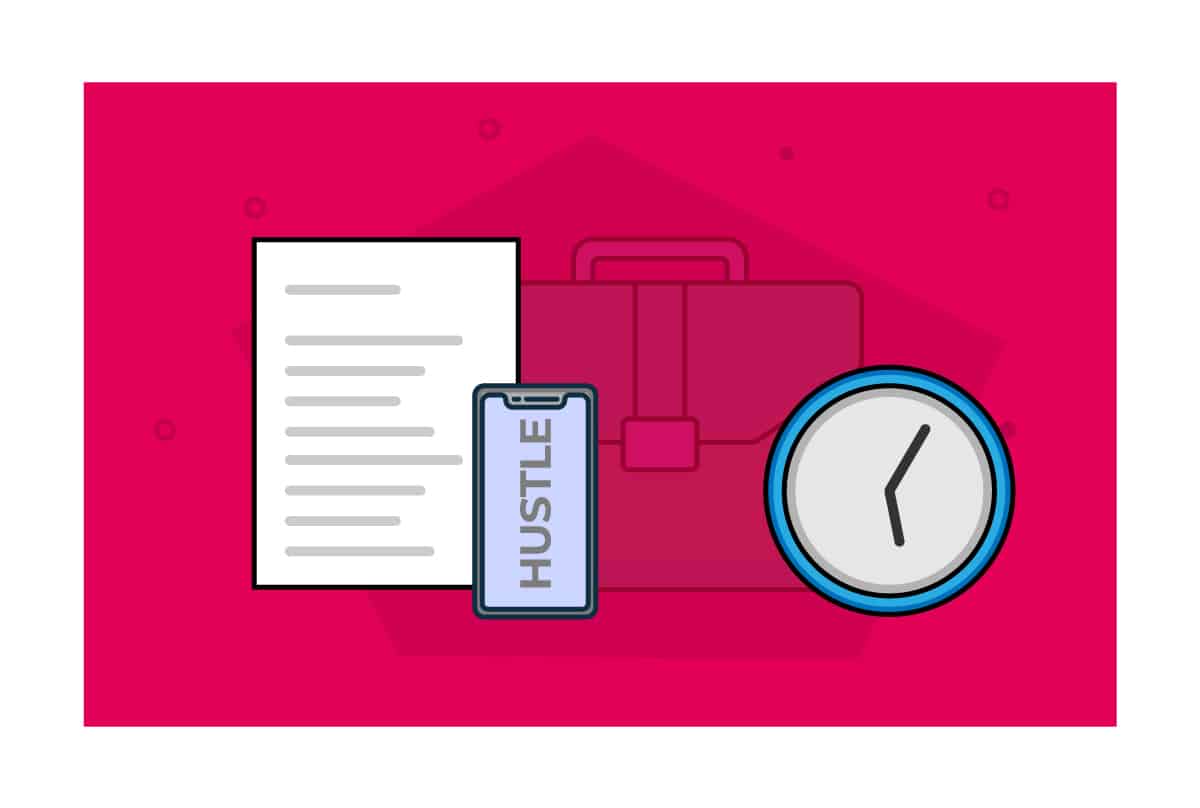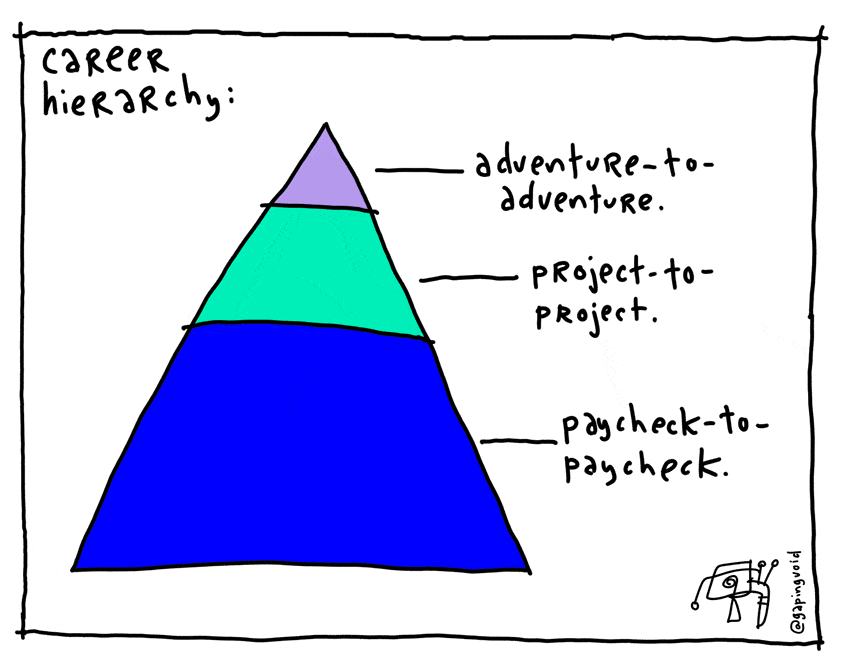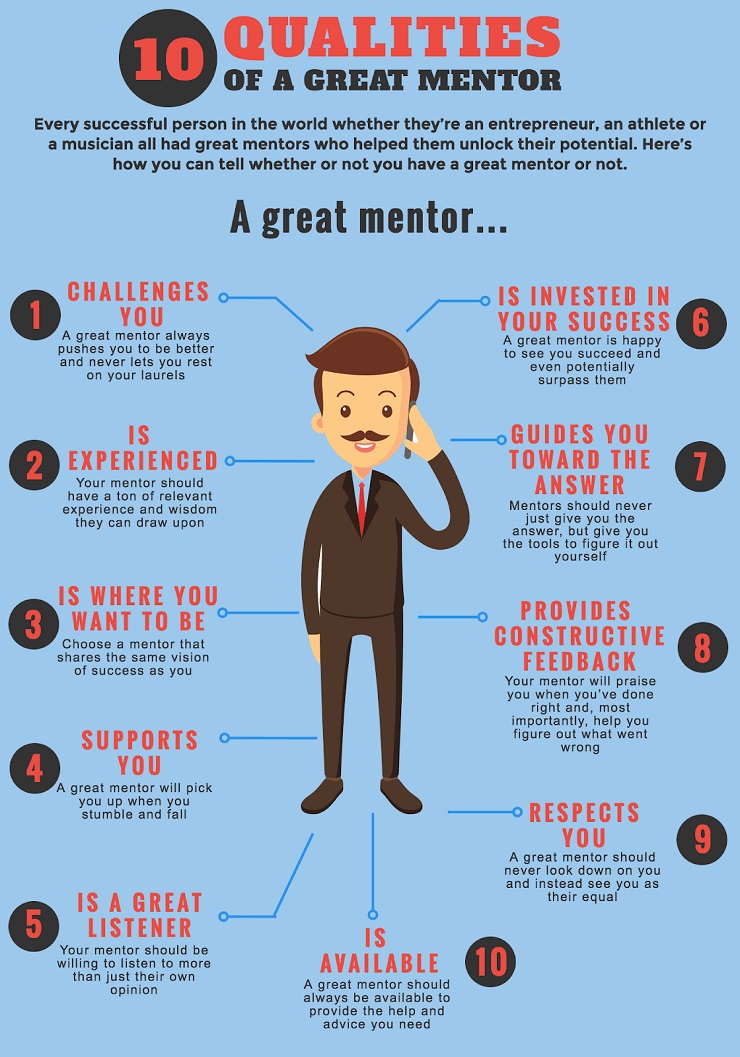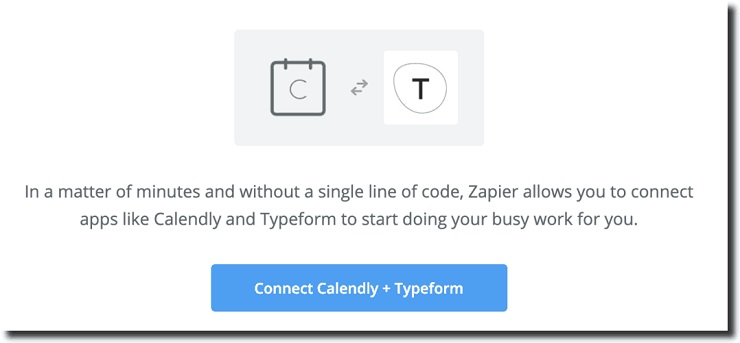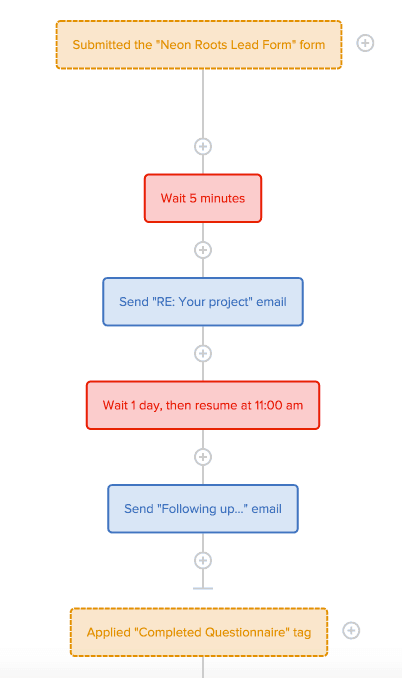You’ve got the skills and you’ve got the passion for becoming a consultant, but do you have the time?
Sure, you could quit your job and learn how to start a consulting business right away, but that would be awfully risky. What if your clients leave you all at once and you have no new leads to work with?
There’s a lot said about the importance of hustling, but if you care about your mental and emotional wellbeing, you need to be smart about the decisions you make.
You want to become a consultant knowing you can pay your living expenses, that you have a lead generating system in place, and that you can systematically grow your consulting business without being overcome by stress. Lose a customer, and it won’t be the end of the world, just a bump in the road.
Like the captain of a ship, you want to firmly hold the wheel of your business and steer it into safe harbors without fear or uncertainty.
It’s hard to do all this as a first-time entrepreneur without the financial stability of a regular wage. That’s why, instead of risking everything in the name of entrepreneurship, I propose you start your consulting business as a side hustle.
Doing so will help you continue making steady money, which you can use to finance your side business as you work afterhours to make it grow. It’s tough, but doable.
Before you go storming out of your 9-to-5, let’s take a look at how you can start your consulting business side hustle, so you can manage risk intelligently and keep your mental health intact.
Let’s get started.
EXCLUSIVE FREE TRAINING: Successful Founders Teach You How to Start and Grow an Online Business
How to Start a Consulting Side Hustle
Know Your Limits
Make the Time to Have the Time
Reverse Engineer Your Success
Get a Mentor or Coach
Build Systems to Scale, Automate, and Outsource
Get Started with Your Consulting Business Side Hustle
Know Your Limits
I know you can’t wait to launch your consulting business and kiss your cubicle goodbye. This is probably especially true if you work in the corporate world and hate the endless bureaucracy—the fast and lean structure of a startup must look very enticing.
Entrepreneurs are famous for feeling “unemployable”—too ambitious, creative, or restless for a regular job, and craving the liberty of the startup.
If that sounds familiar, you might also think it would be ideal to quit your job ASAP, to free up as much time as you can to start a business, fast. That may be true up to a point, but can you sustain yourself while you do it? And more importantly, would it be a smart financial decision to spend any savings you have on supporting yourself, instead of investing it into growing your business?
Probably not. Every dollar you save should be spent on your business, not on buying lattes and paying your iPhone bill—that’s what a job is for, and that’s the point of keeping your job while you launch your consulting business.
What’s more, a full-time job can provide a safe space to learn and test new ideas, which you can then implement with your clients on the side.
That being said, the decision to start your consulting business on the side does generate one problem: You will not have much time to launch it.
At this point, you may be enticed to put on the reality-distortion glasses that entrepreneurs like to wear so often, and imagine yourself spending every minute of your non-working hours on your business.
Goodbye to work-life balance; goodbye to meeting with friends and family. Health? No thank you. Ramen noodles are your new diet, and butt-in-the-chair is your new workout routine.
You have to make sacrifices, amirite?
Yes, you do, but your energy has limits, and so does your health. You can’t realistically abandon your life until you magically get your consulting business on its feet. Rome wasn’t built in a day, and neither will your business.
If you launch your business on the side, you will need to make the most of your time, but still keep some balance. Do some basic math, you will recognize what those limits are:
- You sleep eight hours a day
- You work eight hours a day
- You have eight free hours to do whatever pleases you
Eight hours seems like a lot of freetime to launch a business, but actually, it’s not. You’ll inevitably “lose” some of that time on non-working tasks, including:
- Taking a shower (you gotta clean those follicles, baby!)
- Cooking and washing the dishes (Ramen noodles gotta be cooked too!)
- Cleaning your house (even hermits like to live in clean spaces)
- Waking up and going to bed (FYI, your desk isn’t your bed)
- Visit the toilet (‘nough said)
So let’s assume that if you do all of those things in the most efficient way possible, you’re still left with maybe four to six hours.
That’s not a lot of time, but it’s much more realistic. You can start setting up the specific tasks you need to do to get your consulting business started from the ground up, and split them into time chunks (like Pomodoros) so you can laser-focus your energy on them.
You have limited time to get everything done. Use that as a motivation tool to focus on the few things that matter—the 20% of things that provide the 80% of results.
EXCLUSIVE FREE TRAINING: Successful Founders Teach You How to Start and Grow an Online Business
Make the Time to Have the Time
Now that you are fully aware of how limited your time is, it’s time to make some time. That means maximizing the hours you have as best you can.
“Squeezing your time” doesn’t mean closing yourself off to the world. Rather, it means putting a stop to unnecessary distractions.
But exactly what qualifies as a distraction can be very subjective—while some think that reading the news is a must, others don’t. While some think that watching the latest GoT episode is a must, others don’t (fortunately, that distraction has officially gone the way of the Night King).
But there are some undeniable time sucks. Here are three action steps you can take to save many hours a day from unnecessary distractions:
- Cut your TV time. In the US, people spend 4 hours and 10 minutes per day watching TV. In Australia, this number is lower, only 2 hours and 27 minutes. Either is a good chunk of time to reclaim.
- Uninstall your social media and shopping apps. In the US, people spend 3 hours and 35 minutes a day on mobile apps, like Instagram, Snapchat, and Facebook. Shopping apps also take a lot of time, so consider uninstalling things like Amazon.
- Cut the news. In the US, people spend 72 minutes a day checking the news. Consider what coverage is essential to you.
I’d also recommend you tell all your friends about your new consulting side hustle. Explain to them that this means limiting your time with them for the next three to six months. Obviously, you still want to hang out with your friends, but you need to strike the right balance. By being open and honest, you’ll do both.
Going out to your best friend’s birthday party or your college friend’s bachelor party are both important and enriching. Going out for beers with your buddies on a Thursday night until 2 a.m. isn’t. Choose your social gatherings wisely.
The key question to eliminate any potential distraction from your life is to ask yourself, “Does this activity provide any meaningful value to my life?”
Watching the latest episode of The Tonight Show may be good for a laugh or two, but do you really need to spend one hour a day doing so? Probably not.
Does going out for a coffee with a high school friend to relax and remember the good-ol’ times when you were both super lame add any value? Maybe not, but at least it adds some emotional depth to your life, and if you need some bonding and relaxation, such activity wouldn’t be considered a distraction.
By all means, keep your life balanced. Your only job is to choose your distractions wisely so you can recover your energies most efficiently.
Reverse Engineer Your Success
Given your limited time, you want to make sure everything you do to build and grow your consulting side hustle truly matters. To define whether something matters or not, you first need to know where your business is going and where you want to take it on the first place.
A simple method you can use to uncover such tasks is to define your ultimate goal—for example, to have three paying customers—and reverse engineer from there.
Ask yourself:
- What is it that you need to have in place to get those clients?
- How will they find you?
- How will you pitch them?
Through such questions, you will be able to get a much better picture of the road you need to take to build your business.
As a business owner, you will also need some elements in place to lock a legal contract with your customers, among other things. Some of these elements include having:
- A contract, like this one
- A consulting proposal
- A proposal template
- A business site with a form where you can get people to ask for a meeting
- A sales script where you can uncover the prospect’s needs and pitch your business—a good framework for this is the SPIN selling methodology
All of these elements are equally important. For example, you don’t want to look unprofessional and get your first client without knowing how you will onboard them.
Take the time to line up all of these elements and any others you think you need before it’s too late. Define everything beforehand so by the time you start pitching and getting leads, you know exactly what you need to do.
Get a Mentor or Coach
You know you don’t have all the time in the world to start your consulting business, and that’s great. It will make your plans more realistic and motivate you to get things done when you do sit down to work.
Humility, however, shouldn’t be limited to time alone. While you’re an expert at what you do—which is one of the reasons why you want to start your consulting business in the first place—you probably don’t know much about how to start a business.
That’s the hard truth all first-time entrepreneurs face, and it’s one you will eventually face too.
No matter how much you read or study, you will face unforeseeable problems that will slow down or stop your progress.
You need help from someone who’s been there and done what you want to do. To that extent, find a mentor or coach who can greatly help you speed up your progress.
A mentor is someone who’s more experienced and knowledgeable than you—someone whose success you’d like to emulate. This isn’t someone you’ll pay to help you; they help you because they want to help you.
It could be that the mentor likes you enough to help you, or that you give them something in return—knowledge, time, emotional satisfaction—that they appreciate.
Whatever the case, the experience a mentor provides you will help you learn faster, overcome problems easier, and do tasks you’d have not imagined if it wasn’t for their experience.
Coaches are similar to mentors, but instead of helping you for free, you hire them to help you. Just like you might pay a personal trainer to help you improve your weightlifting, a business coach will provide you with the feedback you need to have more clarity, work more efficiently, and focus on the tasks that matter.
Expensive as they can be, coaches are an invaluable investment any first-time consultant can make, especially if you know what problems you’re facing and you feel like you can’t solve them on your own.
Both mentors and coaches will provide you with the unique feedback that you need to make the wise decisions successful entrepreneurs make to succeed.
Build Systems to Scale, Automate, and Outsource
One of the first problems many new consultants face is the fact they can’t do everything at once—especially when starting a business on the side.
Your clients will hire you because of your expertise, and this expertise goes beyond the actual tasks that make your job.
A freelancer is often hired to do one specific task. In the case of a designer, this could be to develop a web design that meets a client’s predetermined needs. It could be something basic that doesn’t require much strategic thinking on your end.
A consultant, in contrast, not only has the deep expertise of the typical freelancer, but also brings a strategic mindset to the solution. A design consultant may provide a design that will represent a brand based on its mission and value proposition. They will provide deep thinking that goes beyond the actual design of, let’s say, a simple homepage.
That’s a deep and often overlooked distinction that you need to understand, because not only will it help you command higher prices (which is awesome on its own), but it will mean you will have to spend more of your time thinking strategically, not working operationally.
Given the time constraints explained in the first section, a consultant who’s starting a business on the side needs to develop systems to be able to either delegate or outsource the operational side of the business to free up time to work on the strategic aspect of their job.
Consultants who are able to build real businesses around their skills and knowledge likely can’t work alone. They often have teams—however small—that help them maximize the value they have to give.
To have more time to sell, grow your business, and help your clients, you need to define how you do everything down to the comma, so you can then hire someone to do the job for you (or, at least, help you with it).
Besides delegation or outsourcing systems, an even simpler way to have more time to work on the strategic aspect of the business is to use automation. That means using software that does a certain set of tasks automatically without any human input. While small, the tasks you automate can help you save serious time and lower your stress.
If you ever see yourself wasting more time than you need scheduling calls with your clients, then you need to automate that task. Tools like Zapier and IFTTT are incredibly useful to help you automate lots of the small tasks most consultants face.
With these tools, you can easily send a Calendly link for a prospect to schedule a call with you after they send you a message from a Typeform you have in your site.
A more in-depth and advanced system is the one Brennan Dunn developed, which shows you how you can automate most of your marketing and sales with the help of Zapier, Drip, Calendly, Pipedrive, and Typeform.
Remember: A consultant is someone who thinks strategically.
If you want to build a consulting business on the side, you need to focus the most time being the thinking person.
At first, this may be hard, but as you start to make money, you need to start developing systems that help you take all this work off of your back and onto employees or tools.
EXCLUSIVE FREE TRAINING: Successful Founders Teach You How to Start and Grow an Online Business
Get Started with Your Consulting Business Side Hustle
There’s a hard, hidden truth every consulting business founder shares—they all started small.
Every business starts with one client, one idea, one process that solves a problem. There’s no need to overcomplicate this process; you only need to be aware of your limits and the elements you need to have in place to start your consulting business.
As long as you make the time every day to work on your side hustle—as little as one hour and as many as six—you will be able to become an independent, full-time consultant in no time.
This is just the beginning—the start of your path as an independent consultant—so make it count.
Are you trying to start your own consulting business on the side? Let us know your biggest victories and challenges in the comments below!
